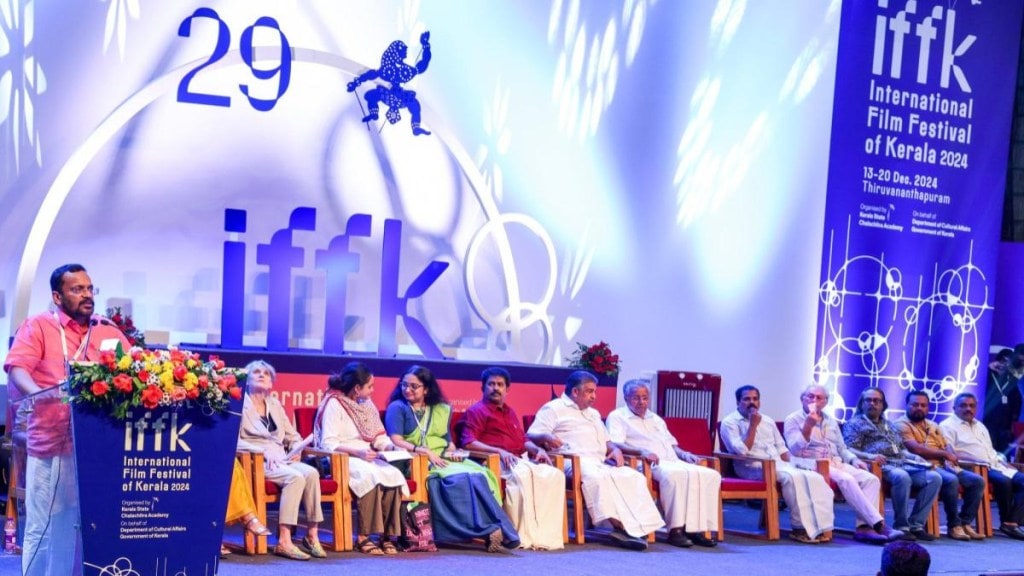S
When she set out to direct her first feature film, Adithya Baby had an army of university classmates as her cast and crew. The familiarity of friends ensured that the production of Kamadevan Nakshatram Kandu (Cupid Saw the Star), the Malayalam language film screened at the just-concluded International Film Festival of Kerala (IFFK), was a safe workplace for everyone. Many more women professionals in the Malayalam film industry are hoping it would be the same for them too, even without a close circle of friends.
The 29th edition of IFFK (December 13-20), held after the much-delayed release of the Justice Hema Committee report on sexual harassment in the film industry in Kerala three months ago, has kept the focus on women in cinema with a female-centric programming this year. However, the symbolic gesture does little to assuage the grieved. With justice for the unnamed survivors in the redacted report still undelivered, calls for action against the perpetrators of violence against women in Malayalam cinema are getting louder in the southern state. “The Hema Committee report has made a serious impact not only on the Malayalam film industry, but also in other states. It has shaken the old order of power and patriarchy,” says Fowzia Fathima, co-founder of the 120-member Indian Women Cinematographers’ Collective. “The next generation has taken note of how better the environment can be at the workplace,” adds Fathima.
The counterparts of Kerala women film professionals in other major film-producing states also await a credible outcome of the Hema Committee report. The first such government-initiated probe in the Indian film industry, the committee is expected to help create a model for safety at workplace in Indian cinema.
Women’s rights activists and collectives in cinema attribute a direct relation to violence against women to the lack of opportunities for them in the industry. Implementation of the Justice Hema Committee report, women professionals in Kerala say, should include education and awareness of workplace rules, particularly about the POSH Act, through workshops for male and female professionals, formation of internal complaints committees, employment of more women technicians and 50:50 representation.
Many in the Malayalam film industry are cautious about the outcome. “There is a danger of lip service in the notion of equality,” warns Fathima. “The report shouldn’t get brushed under the carpet. Strict action is necessary if you want change,” says Subhadra Mahajan, whose debut feature film, Second Chance, was part of the Indian Cinema Now at the festival.
Malayalam director Ranjith, the chairman of the Kerala Chalachitra Academy which organises the IFFK, resigned after he was accused of inappropriate behaviour by an actor. Ranjith was among five people, including actors Jayasurya and Mukesh, against whom cases have been registered by the police. None of them was available for comments to FE.
“The men openly accused of sexual harassment should face action. They shouldn’t get away with it to set an example and send the right message,” says Mahajan, the co-writer of the 2015 film, Angry Indian Goddesses. “We need an equal number of women working in the Indian film industry to achieve gender equality,” she says, adding women in the film industry are traumatised everyday at the workplace by demeaning comments, sexist and sexual jokes and bodyshaming.
“We selected more and more films from female directors this year,” says Golda Sellam, the curator of IFFK, adding: “In France, there is a 50:50 movement that protects female professionals at their work. During shooting, now there is a coach who is watching and preparing any female in an intimate scene to ensure there is no abuse. The coach is a trained psychology professional who is a safeguard against intrusions against female actors. We need that here too.”

